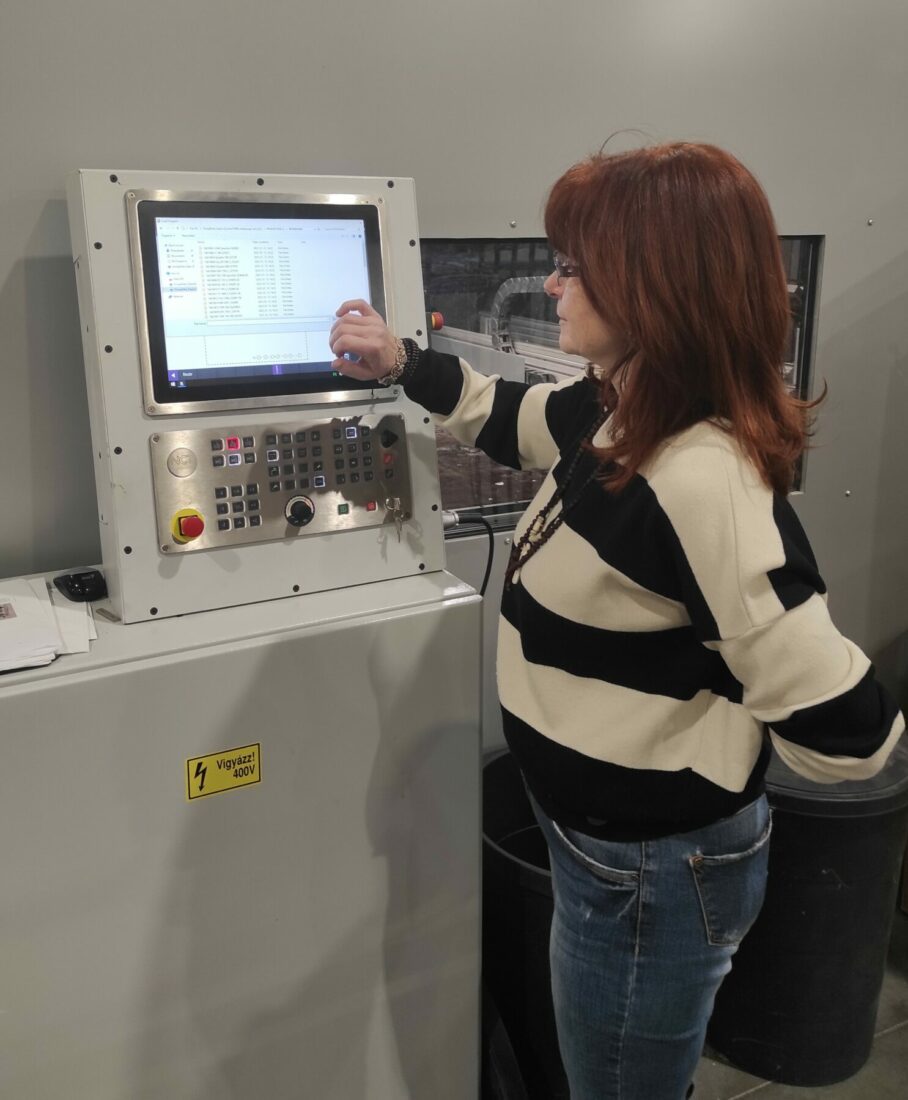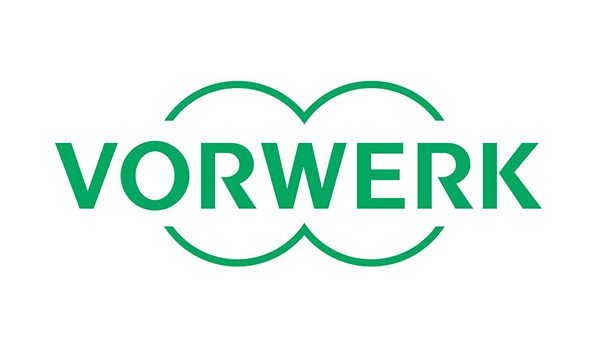Bei der Suche nach energieeffizienten Heizsystemen für das Eigenheim stellen sich viele Menschen die Frage: „Kann man mit einer Wärmepumpe ein ganzes Haus heizen?„Die Antwort ist kein einfaches ‚Ja‘ oder ‚Nein‘. Es spielen mehrere Faktoren eine Rolle, wie etwa die Größe und Qualität der Isolierung Ihres Hauses, das lokale Klima und natürlich die Art der Wärmepumpe.
Dieser Artikel soll Sie durch diese Überlegungen führen und Ihnen ein umfassendes Verständnis dafür vermitteln, ob eine Wärmepumpe Ihren Heizbedarf zu Hause decken kann. Am Ende sollten Sie ein besseres Verständnis für die Machbarkeit und Praktikabilität der Verwendung einer Wärmepumpe zum Heizen Ihres gesamten Hauses haben. Tauchen wir also ein und erkunden die Welt der Wärmepumpen.
In diesem Artikel behandeln wir Themen wie:
- Die Grundlagen der Wärmepumpe
- Ob Sie mit einer Wärmepumpe Ihr ganzes Haus heizen können
- Beurteilung der Größe und Isolierung Ihres Hauses
- Den richtigen Wärmepumpentyp auswählen
- Wärmepumpen für ein großes Haus
- Kosten und Energieeffizienz von Wärmepumpen
- Staatliche Anreize und Rabatte für Wärmepumpen
- Tipps zum Heizen Ihres Hauses mit einer Wärmepumpe
- Häufige Fragen zu Wärmepumpen
Die Grundlagen von Wärmepumpen verstehen
A Wärmepumpe ist ein Gerät, das eine kleine Menge Energie verwendet, um Wärme von einem Ort zum anderen zu transportieren. Es ist einer Klimaanlage nicht unähnlich, aber während eine Klimaanlage nur Luft kühlt, kann eine Wärmepumpe entweder heizen oder kühlen. Dies wird durch die Umkehrung des Kühlmittelflusses erreicht.
Beim Heizen eines Hauses beispielsweise entzieht die Pumpe der Außenluft Wärme und leitet sie nach innen. Beim Kühlen hingegen entzieht sie der Innenluft Wärme und leitet sie nach außen. Wärmepumpenprozess ist von grundlegender Bedeutung, um das Potenzial der Beheizung eines ganzen Hauses mit einer Wärmepumpe weiter auszuloten.
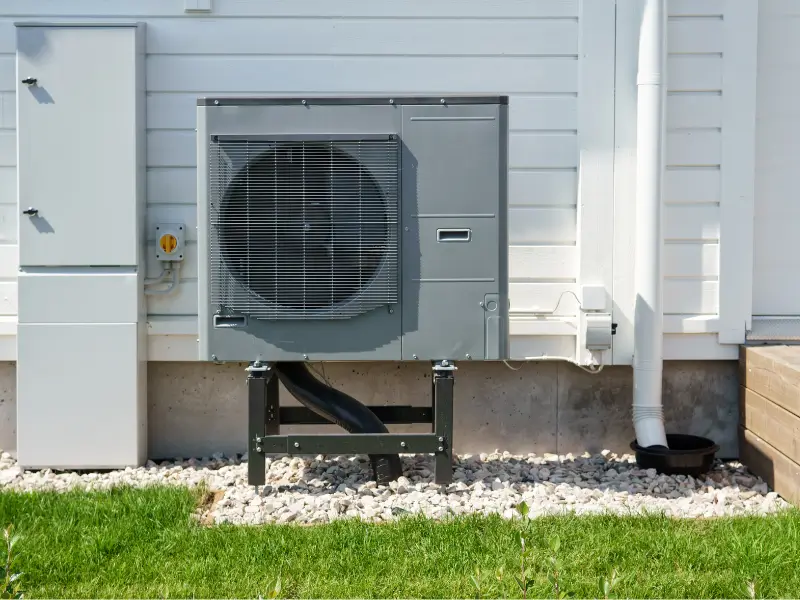
Bewerten Sie die Größe und Isolierung Ihres Hauses
Fachinstallateure helfen Ihnen dabei, die Größe und den Isolationszustand Ihres Hauses zu beurteilen, da diese Faktoren die Effizienz eines Heizsystems stark beeinflussen können. Ein kleines, gut isoliertes Haus kann mit einer Wärmepumpe möglicherweise einfacher und effizienter beheizt werden als ein größeres, schlecht isoliertes Haus.
Faktoren wie Wandisolierung, Doppelverglasung und das Alter des Hauses können sich alle auf die Wärmespeicherung auswirken. Die Quadratmeterzahl Ihres Hauses bestimmt auch die Größe und Art der Wärmepumpe, die Sie benötigen. Größere Häuser erfordern möglicherweise mehrere Wärmepumpen oder ein leistungsstärkeres System. Bevor Sie sich für eine Wärmepumpe als Heizlösung entscheiden, sollten Sie daher die Größe und den Isolierungszustand Ihres Hauses gründlich prüfen.
Berücksichtigung des Klimas und des Temperaturbereichs
Bei der Wahl eines Heizsystems ist es wichtig, das lokale Klima und den Temperaturbereich zu berücksichtigen, da diese Faktoren die Leistung und Effizienz des gewählten Systems erheblich beeinflussen können. Eine Wärmepumpe funktioniert beispielsweise optimal in gemäßigten Klimazonen, in denen die Temperatur selten unter den Gefrierpunkt fällt. Dies liegt daran, dass das System der Außenluft Wärme entzieht, um das Haus zu heizen.
In extrem kaltes Klima, kann die Wärmepumpe möglicherweise nicht genügend Wärme liefern und muss möglicherweise durch eine andere Wärmequelle ergänzt werden. In milden Klimazonen hingegen kann eine Wärmepumpe Ihr ganzes Haus effizient heizen, wodurch der Energieverbrauch gesenkt und Ihre Stromrechnungen reduziert werden. Daher ist es entscheidend, Ihre lokalen Wettermuster und Temperaturschwankungen zu kennen, um zu entscheiden, ob eine Wärmepumpe das richtige Heizsystem für Ihr Zuhause ist.
Lerne mehr über So funktionieren Wärmepumpen.
Können Sie für ein großes Haus eine Wärmepumpe bekommen?
Wenn Sie eine Wärmepumpe für ein großes Haus in Betracht ziehen, ist es wichtig zu verstehen, dass die Größe und der Grundriss Ihres Hauses die Art und Anzahl der benötigten Wärmepumpen erheblich beeinflussen. Hier erfahren Sie im Detail, wie Sie ein großes Haus mit einer Wärmepumpe effektiv heizen können.
Größe und Effizienz: Bei einem großen Haus muss die Wärmepumpenanlage ausreichend dimensioniert sein, um eine effiziente Heizung zu gewährleisten. Eine zu kleine Anlage wird Mühe haben, eine angenehme Temperatur aufrechtzuerhalten, während eine zu große Anlage zu häufig ein- und ausgeschaltet werden kann, was die Effizienz und Lebensdauer verringert. Ein Fachinstallateur berechnet die Heizlast anhand der Quadratmeterzahl, der Isolierungsqualität und des Grundrisses Ihres Hauses, um die richtige Größe zu empfehlen.
Mehrere Einheiten und Zoneneinteilung: In vielen Fällen reicht eine einzelne Wärmepumpe für ein großes Haus nicht aus. Um eine gleichmäßige Beheizung des gesamten Hauses zu gewährleisten, können mehrere Einheiten installiert werden. Darüber hinaus können durch die Implementierung eines Zonensystems verschiedene Bereiche des Hauses unabhängig voneinander beheizt werden. Dies verbessert nicht nur den Komfort, sondern erhöht auch die Energieeffizienz, da Sie nur die genutzten Bereiche heizen können.
Für große Häuser geeignete Wärmepumpentypen:
- Luftwärmepumpen: Diese sind aufgrund ihrer geringeren Installationskosten und Vielseitigkeit beliebt. In einem großen Haus benötigen Sie jedoch möglicherweise mehrere Luftquelleneinheiten oder ein leistungsstärkeres System, um eine ausreichende Heizung zu gewährleisten.
- Erdwärmepumpen (Geothermie): Diese sind hocheffizient und ideal für große Häuser. Obwohl die anfänglichen Installationskosten höher sind, bieten sie langfristig erhebliche Einsparungen und eine konstante Heizleistung.
- Wasser-Wärmepumpen: Wenn sich Ihr Grundstück in der Nähe einer ausreichend großen Wasserquelle befindet, kann dieser Typ für ein großes Haus äußerst effizient sein und bietet eine weitere praktikable Option für eine konstante Beheizung.
Integration mit bestehenden Systemen: Bei großen Häusern mit vorhandenen Heizsystemen kann die Integration einer Wärmepumpe die Gesamteffizienz steigern. Hybridsysteme, bei denen eine Wärmepumpe zusammen mit einem herkömmlichen Heizkessel arbeitet, können bei Spitzenbedarf die notwendige Heizleistung bereitstellen.
Montage und Fachberatung: Die Installation einer Wärmepumpe in einem großen Haus ist ein komplexer Prozess, der eine professionelle Beurteilung und Installation erfordert. Die Beratung durch erfahrene Installateure stellt sicher, dass das System auf die spezifischen Bedürfnisse Ihres Hauses zugeschnitten ist und optimale Leistung und Effizienz gewährleistet.
Langfristige Vorteile: Trotz der höheren Anfangsinvestition bieten Wärmepumpen für große Häuser erhebliche langfristige Vorteile. Dazu gehören niedrigere Energiekosten, ein geringerer CO2-Fußabdruck und der Komfort eines dualen Heiz- und Kühlsystems. Darüber hinaus können staatliche Anreize und Rabatte dazu beitragen, einen Teil der Vorlaufkosten auszugleichen.
Bei der Auswahl der richtigen Wärmepumpe für ein großes Haus müssen Größe, Typ und Installationsprozess des Systems sorgfältig berücksichtigt werden. Durch die Beratung durch Fachleute und die Berücksichtigung der individuellen Anforderungen Ihres Hauses können Sie eine effiziente und effektive Heizung erreichen, die den Komfort erhöht und die Energiekosten senkt.
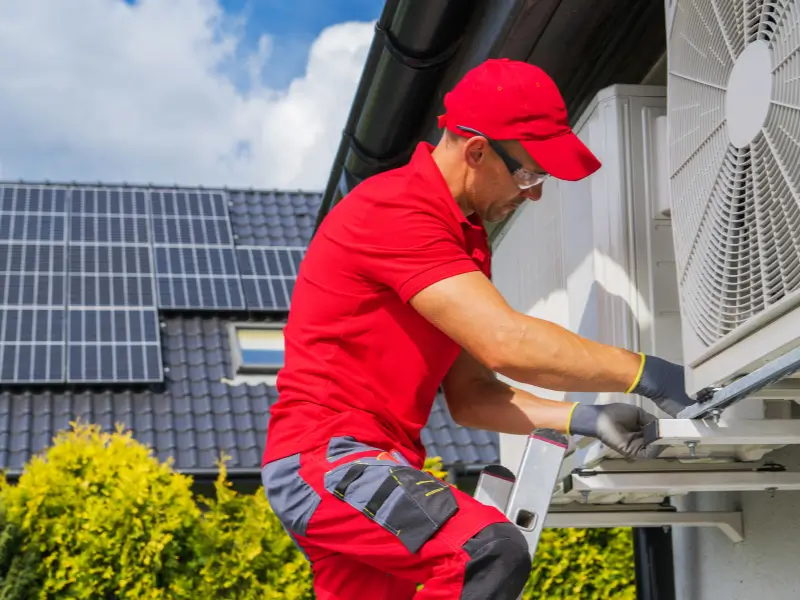
Auswahl des richtigen Wärmepumpentyps
Die Wahl der perfekten Pumpe kann ein kleines Rätsel sein, aber keine Sorge, deshalb ist es so wichtig, mit Fachinstallateuren über die beste Option für Sie zu sprechen.
Es gibt drei verschiedene Arten von Wärmepumpen: Luft-Luft-Wärmepumpen, Erdwärmepumpen und Wasserwärmepumpen. Luft-Luft-Wärmepumpen sind die am häufigsten vorkommenden Wärmepumpen, die Wärme mit der Außenluft austauschen. Geothermie-Wärmepumpen nutzen die stabile Temperatur der Erde als Wärmequelle, was sie effizienter, aber auch teurer macht. Wasserquellpumpen nutzen Wasser als Wärmeträger und sind ideal für Regionen in der Nähe von Gewässern.
Die Wahl zwischen diesen Typen hängt von Ihrem Budget, Ihrem Standort und der Größe Ihres Hauses ab. Lassen Sie sich vor einer Entscheidung immer von einem Fachmann beraten.
Kosten und Energieeffizienz bewerten
Die Anfangsinvestition für eine Wärmepumpe ist möglicherweise höher als bei herkömmlichen Heizsystemen, aber es ist wichtig, die langfristigen Einsparungen zu berücksichtigen. Wärmepumpen sind unglaublich energieeffizient und wandeln den Großteil ihrer Energie in Wärme um. Diese Effizienz führt zu niedrigeren Energierechnungen, die die höheren Anschaffungskosten im Laufe der Zeit ausgleichen können. Darüber hinaus wirkt sich auch der von Ihnen gewählte Wärmepumpentyp auf die Kosten und die Energieeffizienz aus.
Zum Beispiel, Luftwärmepumpen sind kostengünstiger und einfacher zu installieren, aber Erdwärmepumpen sind zwar teurer und aufwändiger zu installieren, bieten aber eine höhere Energieeffizienz. Erwähnenswert ist auch, dass staatliche Anreize helfen können, die Installationskosten auszugleichen, sodass Wärmepumpen eine wirtschaftliche Wahl für die Beheizung eines ganzen Hauses sind.
Erfahren Sie mehr über die Energieeffizienz von Wärmepumpen und HLK-Systemen
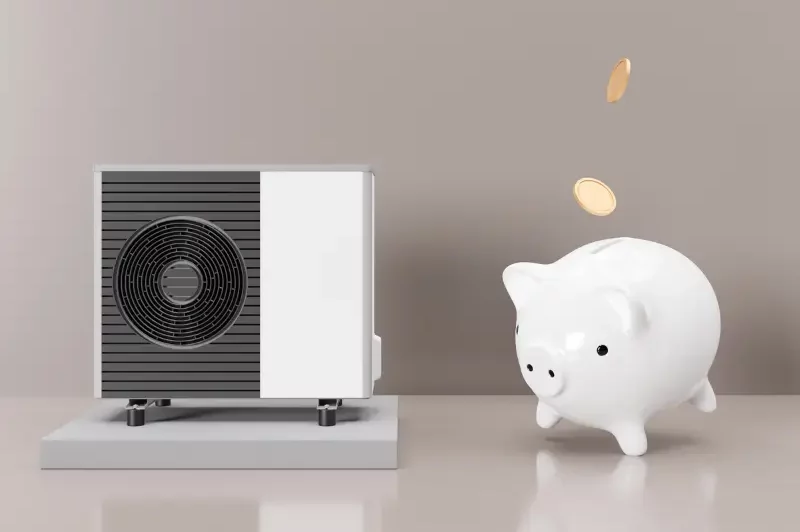
Gibt es staatliche Anreize für den Einbau einer Wärmepumpe?
Ja, es gibt mehrere Anreize der US-Regierung für diejenigen, die den Einbau einer Wärmepumpe in Erwägung ziehen. Diese Anreize können die Anschaffungskosten erheblich senken und Wärmepumpen zu einer attraktiven Option für energieeffizientes Heizen von Wohnhäusern machen. Hier ist eine Übersicht über die wichtigsten Anreize:
Bundessteuergutschriften:
- Gesetz zur Inflationsreduzierung (IRA): Wenn Sie zwischen jetzt und 2032 eine effiziente Wärmepumpe installieren, haben Sie Anspruch auf eine staatliche Steuergutschrift, die 301 TP3T der Kosten abdeckt, bis zu 1 TP4T2.000 jährlich. Diese Steuergutschrift soll Eigenheimbesitzern helfen, ohne Einkommensobergrenze in energieeffiziente Technologien zu investieren, solange eine Steuerpflicht besteht.
- Effizienzanforderungen: Um sich zu qualifizieren, muss die Wärmepumpe bestimmte Effizienzstandards erfüllen und sicherstellen, dass sie zur höchsten nicht-fortgeschrittenen Stufe des Konsortiums für Energieeffizienz gehört (Umwelt Amerika) (Umwelt Amerika)
Staatliche Rabatte:
- Staatlich verwaltete Rabatte: Diese variieren je nach Bundesstaat und richten sich an Haushalte mit niedrigem und mittlerem Einkommen. Abhängig vom Einkommensniveau können die Rabatte bis zu 1001 TP3T der Kosten für Heiz- und Kühlwärmepumpen (bis zu 1 TP4T8.000) und Wärmepumpen-Warmwasserbereiter (bis zu 1 TP4T1.750) abdecken.
- Einkommensstufen: Haushalte, die weniger als 801 TP3B des mittleren Einkommens des Staates verdienen, können volle Rückerstattungen erhalten, während diejenigen, die zwischen 801 TP3B und 1501 TP3B des mittleren Einkommens verdienen, Rückerstattungen in Höhe von 501 TP3B erhalten können. Diese Rückerstattungen werden voraussichtlich über staatliche Programme umgesetzt (Umwelt Amerika) (Umwelt Amerika).
Zusätzliche Anreize:
- Upgrades für Schalttafeln: Auch für notwendige Modernisierungsmaßnahmen im Eigenheim zur Unterstützung der Installation einer Wärmepumpe, wie z. B. die Modernisierung der Schalttafel, sind Rabatte verfügbar (bis zu $4.000 für Haushalte mit niedrigem Einkommen).
- Elektrische Verkabelung: Ebenso können Rabatte für die Modernisierung der elektrischen Leitungen gewährt werden, die für die Integration neuer Wärmepumpensysteme unerlässlich sind (bis zu $600 für Haushalte mit niedrigem Einkommen) (Umwelt Amerika) (Umwelt Amerika).
Vorteile dieser Anreize:
- Einsparmaßnahmen: Diese Anreize verringern die Vorlaufkosten für die Installation einer Wärmepumpe und machen sie somit zugänglicher und erschwinglicher.
- Energieeffizienz: Die Investition in eine Wärmepumpe kann im Laufe der Zeit zu erheblichen Energieeinsparungen führen, da Wärmepumpen wesentlich effizienter sind als herkömmliche Heizsysteme.
- Umweltbelastung: Wärmepumpen verringern die Abhängigkeit von fossilen Brennstoffen, verringern dadurch die Treibhausgasemissionen und tragen zu sauberer Luft und einer gesünderen Umwelt bei.
Durch die Inanspruchnahme dieser staatlichen Steuergutschriften und -rabatte können Eigenheimbesitzer eine kluge Investition in Energieeffizienz tätigen, die sich durch niedrigere Stromrechnungen und Umweltvorteile auszahlt. Ausführlichere Informationen zu diesen Anreizen und zur Antragstellung finden Sie auf den Websites von Environment America und Energy Star.
Häufig gestellte Fragen
Wärmepumpensysteme erfordern für optimale Leistung regelmäßige Wartung. Dazu gehören jährliche Servicekontrollen, regelmäßige Filterwechsel, Reinigung der Außeneinheit und gelegentliche Spulen- und Lüfterinspektionen durch einen professionellen HLK-Techniker. Erfahren Sie mehr über Wartung der Wärmepumpe.
Ja, Wärmepumpen sind vielseitig einsetzbar und können in den Sommermonaten für Kühlung sorgen. Im Kühlmodus arbeiten sie, indem sie Wärme aus dem Hausinneren entnehmen und nach außen leiten, wodurch der Innenraum effektiv gekühlt wird.
Die Dauer der Installation eines Wärmepumpensystems kann erheblich variieren. Für ein durchschnittlich großes Haus dauert es jedoch normalerweise zwischen 1 und 3 Tagen. Dieser Zeitrahmen hängt von der Komplexität des Installationsprozesses ab.
Ja, Wärmepumpen haben potenzielle Auswirkungen auf die Umwelt. Sie können zur globalen Erwärmung beitragen, wenn sie Kühlmittel austreten lassen, die starke Treibhausgase sind. Sie sind jedoch immer noch umweltfreundlicher als herkömmliche Heizsysteme.
Ja, eine Wärmepumpe kann in einem mehrstöckigen Haus effizient arbeiten. Sie ist dafür ausgelegt, die Temperaturverteilung auf verschiedenen Ebenen zu regeln und so im ganzen Haus ein angenehmes Klima zu gewährleisten, unabhängig von der Anzahl der Stockwerke.
Letzte Worte
Obwohl Enbi keine Wärmepumpen herstellt, hilft uns die Zusammenarbeit mit den weltweit führenden Herstellern, einen guten Einblick in den Markt zu haben und die richtigen Überlegungen anzustellen. Eines ist sicher, unser Angebot an Thermal- und Schalldämmung Materialien tragen dazu bei, Geräusche zu reduzieren und den Energieverbrauch unabhängig vom Wärmepumpentyp zu senken.




